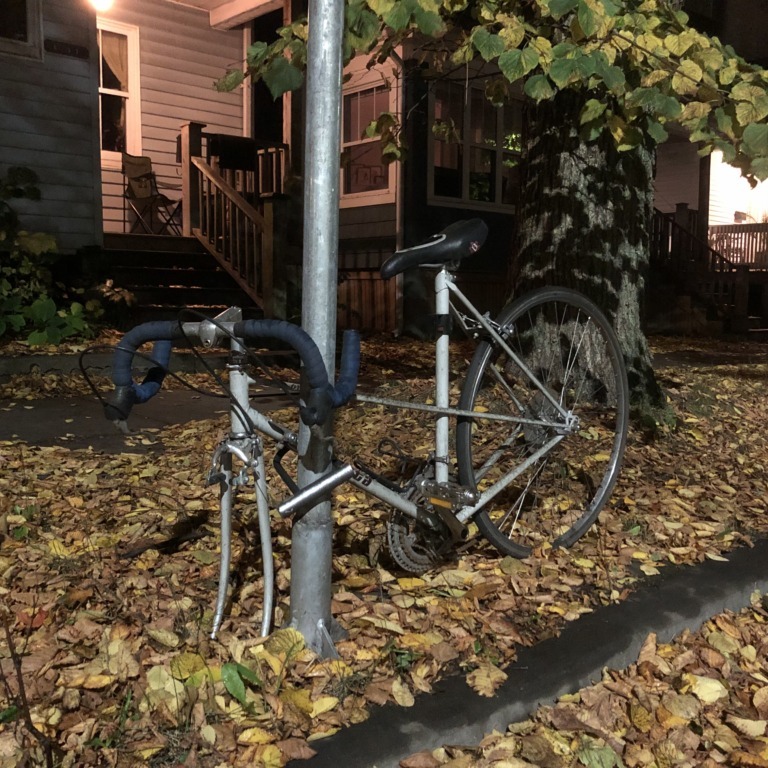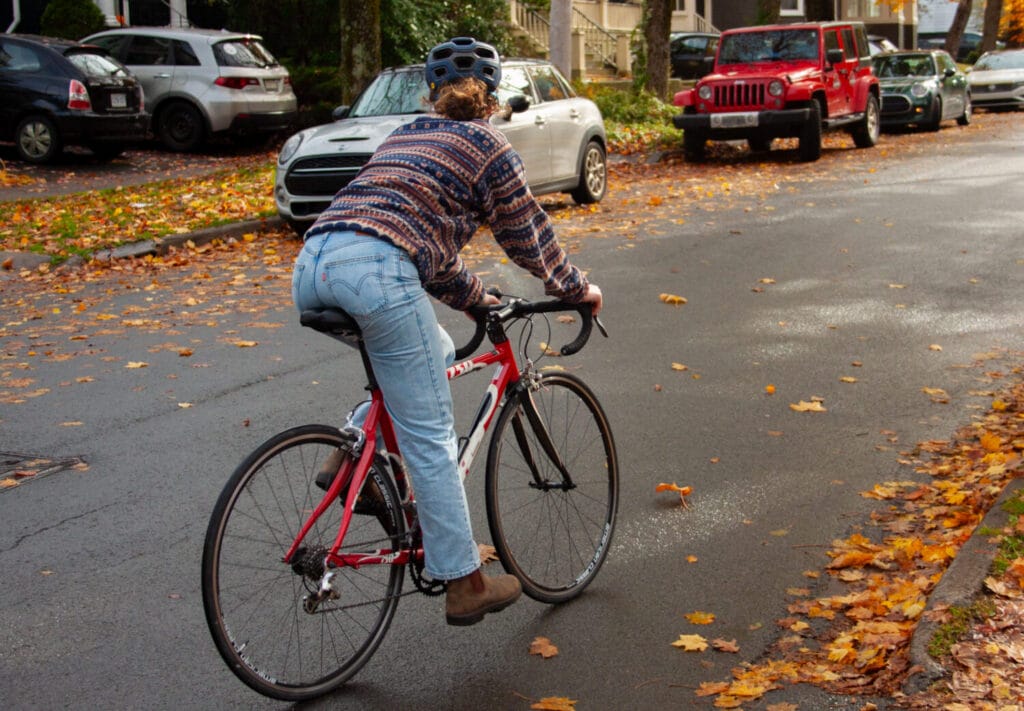
Police, advocates say bike theft a persistent problem in Halifax
Both police and cycling groups say most bike thefts are crimes of opportunity, with limited resources to stop them
When Drew Thorburn’s high-end mountain bike disappeared from the garage of his Spryfield apartment in August, he did what many theft victims do: call the police, file a report and wait.
Almost two months later, his bike is still missing.
“I wish there was more they could do,” he said.
The loss of Thorburn’s bike stings. His 2021 Devinci Troy Carbon GX retails for more than $7,000, and cycling was one of his main forms of recreation.
Thorburn discovered the bike was missing when he noticed the lock of his storage unit had been cut. Police were initially helpful — they collected his photos of the bike, and followed up a week later. But that was the last he heard from them.
A crime of opportunity
Const. Martin Cromwell, a spokesperson for the Halifax Regional Police, said police collect identifying information about stolen bicycles, but there is no specialized database or investigative unit for tracking them down. The thefts, Cromwell said, are often crimes of opportunity occurring in busy areas.
Police take a “reactive” approach to recovering bikes, according to Cromwell. If a bike turns up, police try to trace it, but there is little they can do. Many bikes are recovered by accident, as a result of unrelated investigations.
This approach sometimes pays off, Cromwell said. In June 2024, police recovered approximately 40 stolen bicycles and scooters, reuniting several with their owners.
“When we find a suspect who has many bikes and can’t account for them, and they have serial numbers or other identifying information, we’ll start making calls to the owners who’ve reported the thefts,” he said.
David Trueman, co-chair of the volunteer-run Halifax Cycling Coalition, said more can be done. He said when cyclists feel bike theft is inevitable, fewer people ride.
Trueman recalled a time last year when police took more than an hour to respond after he reported a suspected bike theft in progress at the Halifax Shopping Centre.
“It would help if bike theft was considered a higher priority.”

Project 529
Since last year, Halifax police have advised residents to register their bicycles with Project 529, a community-driven online database used across North America. Users upload their bike’s photo and serial number so stolen bikes can be identified on online marketplaces.
Cromwell said police have no direct access to this database. Officers can look up entries manually, but the registry isn’t integrated with police records. He’s unsure how frequently police use Project 529.
Use of the database soared in Halifax after police and the Halifax Cycling Coalition promoted it. In 2019, there were just 30 registrations; last year, there were 280. Trueman said Project 529 could be valuable, but it isn’t enough if police aren’t actively using it.
“One thing we could do more of is joint promotions of the program. It adds credibility if they have us on their side, and we have them on our side.”
Trueman said a registry is only part of the solution. He said bike thieves no longer just use bolt cutters to cut locks. They have adopted more sophisticated methods, like using portable, battery-powered angle grinders to cut locks quickly.
Prevention over recovery
Cromwell said bike theft is on the rise in Halifax, fuelled by population growth and increased bike ridership, though he couldn’t provide exact figures. According to data obtained by CBC News, there were 275 cases of bike theft in the first 10 months of 2024, up from 140 in 2023.
Cromwell said police emphasize prevention, and currently have no plans to change the way they track and recover stolen bikes. He said cyclists should keep receipts of purchase, record their bike’s serial number and report all thefts.
Both Cromwell and Trueman recommend investing in a high-quality lock — which Trueman said can cost upwards of $200 — and say bikes shouldn’t be left in public overnight.
Trueman also said better infrastructure could help. Businesses and workplaces, he suggested, could provide secure indoor storage for cyclists.
“We’d like to see more people cycling to work, but of course they’re worried about leaving their bike all day,” he said. “Not all companies have the ability, but many could have secure indoor bike parking.”
For Thorburn, whose bike was taken from a locked storage unit, this advice doesn’t change the feeling that he’ll likely never see it again. He said he has no confidence that police will recover his bike.
“It was probably shipped to the other side of the country.”






